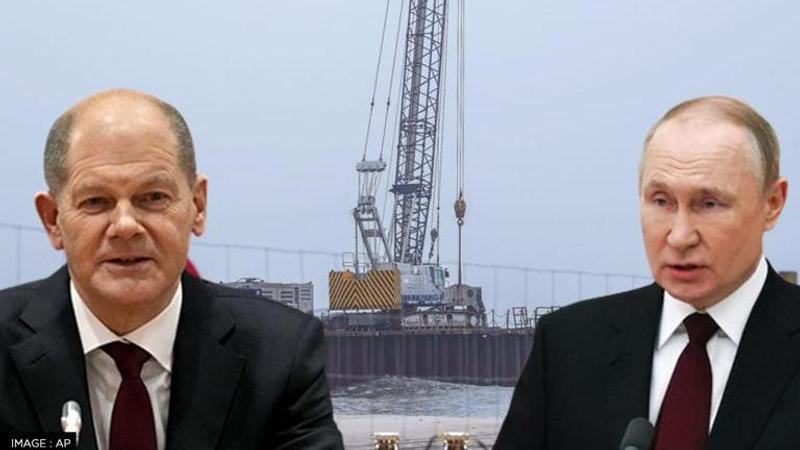Published 10:30 IST, April 28th 2022
Germany the top buyer of Russian gas worth $9.5bn since war began in Ukraine: Report
Germany has remained the largest importer of Russian gas during the first two months of Moscow's all-out invasion of Ukraine on February 24.

Germany has remained the largest importer of Russian gas during the first two months of Moscow's all-out invasion of Ukraine on February 24, said a study published by the Center for Research on Energy and Clean Air. Notably, the European Union countries account for 71% of Russian oil, gas, and energy exports, which amounts to around 44 billion euros.
According to the data collected from monthly trade reports and movement of ships, Russia has earned about $66.5 billion in revenue from gas supplies since the war began and Berlin alone paid $9.5 billion to Russia for fossil fuel deliveries in the said time.
It is pertinent to mention that the report comes at a time when top German Ministers publicly claimed to reduce dependence on Russian gas. Germany's Economic Affairs and Climate Action Minister Robert Habeck earlier this week stated that Berlin has reached "very very close" to giving up Russian oil.
He also called on other European Union countries to "free" themselves from Russian fossil fuel purchases. German Foreign Minister Annalena Baerbock too echoed Habeck's stance, saying that Berlin seeks to "end" Russian imports in "the shortest time".
The report came shortly after Russia suspended gas supplies to Poland and Bulgaria on Wednesday following their refusal to make payment for the imports in rubles. The demand was in line with Russian President Vladimir Putin, who last month said that "unfriendly" countries will have to pay in Russian currency in order to avail fuel and energy supplies.
German expert says figures were plausible due to price hike
A senior energy expert from German Institute for Economic Research Claudia Kemfert explained that the rise in payment amount could be due to the steep rise in increase in fuel prices. In 2021, Germany imported 35% of its total oil consumption from Russia, paying about a quarter of 100 billion euros (for a total of the coal, oil, and gas) purchases to Moscow.
Meanwhile, the German government refused to comment on the increase in gas imports projected in the report. According to the officials, the estimates need to come from companies procuring coal, oil, and gas from Russia.
Germany, over the years, has faced growing discontent over its heavy dependence on Russian gas despite warnings of security threats of its own and the EU. Nevertheless, former Chancellor Angela Merkel had pushed forward against US' decision to sanction the Russian Nord Stream 2 pipeline, an $11 billion project to build pipelines in order to directly transfer Russian gas to Germany.
However, owing to the Russian war in Ukraine, Merkel's successor Olaf Scholz, in March, declined to give an operations certificate to Russia. Ever since, Berlin has been struggling to seek alternative sources to suffice its gas demands.
Kemfert on Thursday, however, highlighted that despite Germany's statements about reducing Russian gas imports, as long as it continues to buy fossil fuels from Russia or other autocracies, "it will undermine both Berlin's credibility and energy security".
(Image: AP)
Updated 10:30 IST, April 28th 2022




